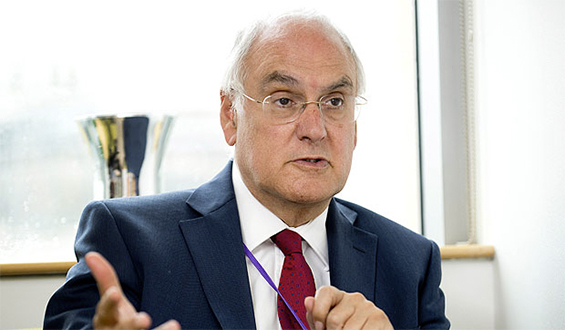
In Ofsted’s yearly report on the state of England’s schools, the organization focused on achievement and quality differences between schools in the North and Midlands and elsewhere. Sir Michael Wilshaw, Ofsted’s chief inspector, described the divide as “deeply troubling.”
More than 400,000 students in these areas are attending a school that is rated below “good” by Ofsted, according to Gonzalo Viña of the Financial Times.
The report discusses 16 local authority areas where less than 60% of children attend secondary schools rated “good” or “outstanding” and where GCSE grades and progress are below the average. All except three of these areas are in the North and Midlands.
These areas also fall short when it comes to the English Baccalaureate, or the eBacc, which is awarded to students who get a C or higher in English, math, two sciences, a foreign language, and history or geography. Only 21.8% of students in the North achieved these standards compared to 26.8% in the South and 29.8% in London.
The North and Midlands areas with below-average schools are Barnsley, Blackpool, Bradford, Derbyshire, Doncaster, Hartlepool, Knowsley, Liverpool, Middlesbrough, Oldham, Salford, St Helens, and Stoke on Trent.
The other three areas are Isle of Wight, Swindon, and South Gloucestershire.
Wilshaw said:
There’s a growing divide between the performance of secondary schools in London and the South and the performance of secondary schools in the Midlands and North.
However, the report was optimistic about primary schools: they continue to improve, according to Sean Coughlan of the BBC, and no area has a significant difference in primary school quality or achievement. Because of this, the secondary-level difference cannot be explained by issues of poverty.
To fix these failings, Wilshaw has called for a campaign modeled after the London Challenge.
The London Challenge, implemented in 2003 by the Labour government, aimed to improve the performance of the city’s secondary schools with financial investment, reports Sally Weale of the Guardian. In the time since, the schools have experienced a remarkable reversal, due in large part to collaboration between schools.
Wilshaw wants to encourage this kind of cooperation to fix this problem as well. He said:
What we are saying very clearly in this report today is that the successful schools, and there are many of them in the north of England and the Midlands in those major towns, need to help those under-performing secondary schools in those satellite towns.
Wilshaw also discussed a teacher recruitment crisis, and proposed “golden handcuffs” to keep teachers in the state sector with financial incentives, according to Sky News. These financial incentives will encourage new teachers to work in schools that need them most, and possibly encourage teachers to stay in the state system instead of leaving to teach at private schools.
Last week chancellor George Osborne published his spending plans for the next five years, in which he allocated £46 billion to northern schools. Wilshaw plans to encourage him to focus on education in these areas.




